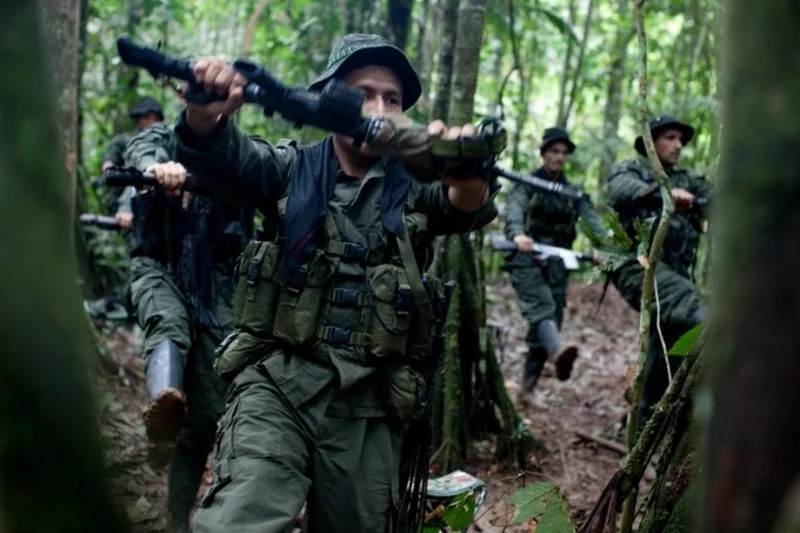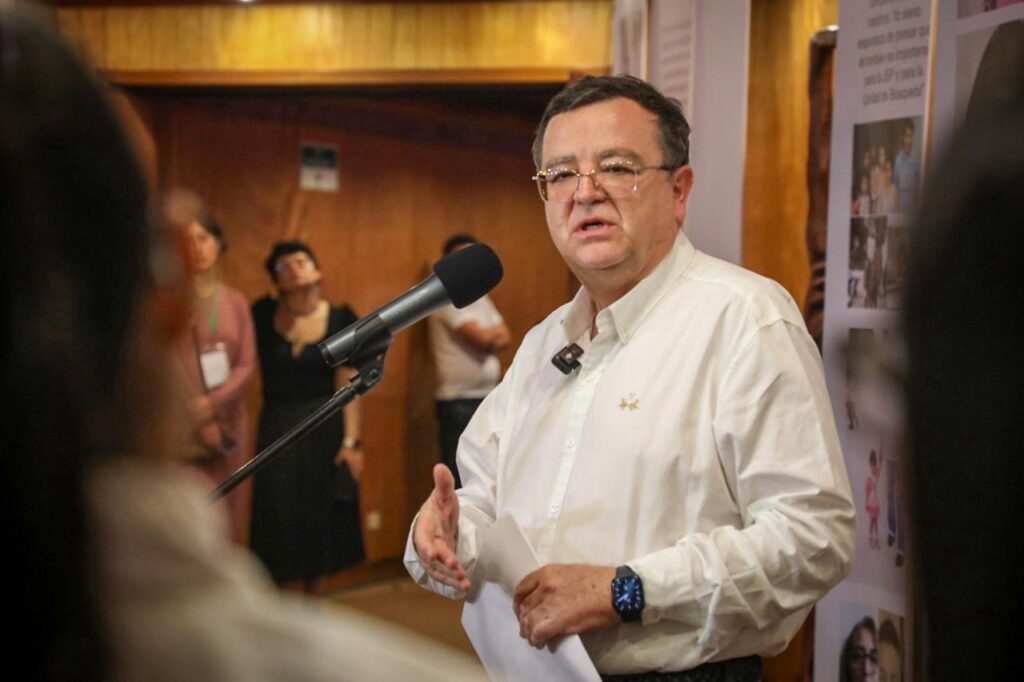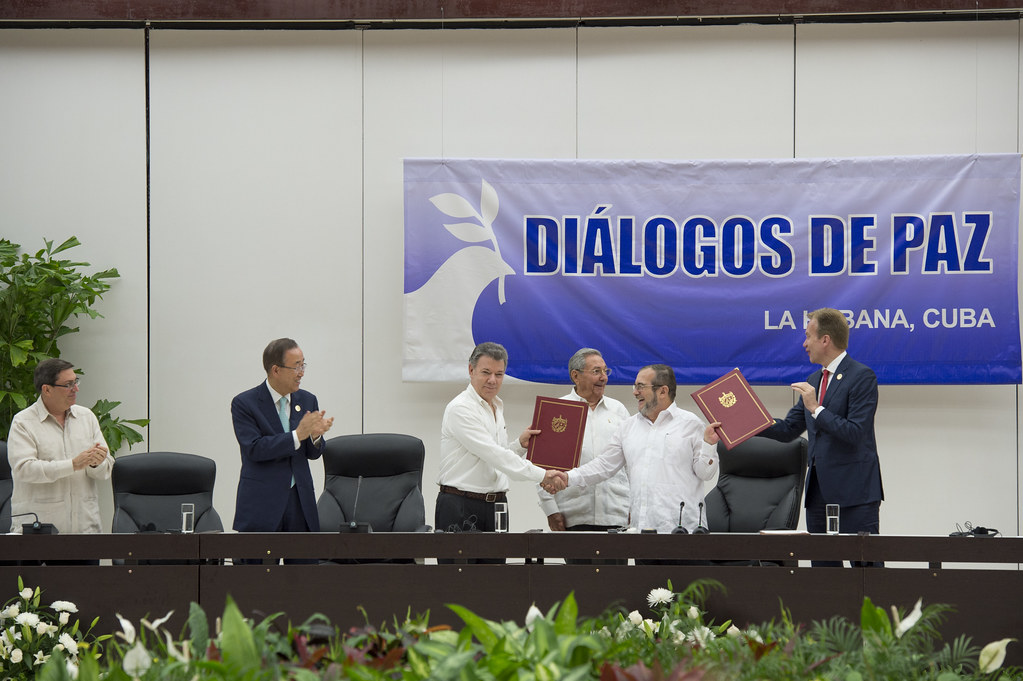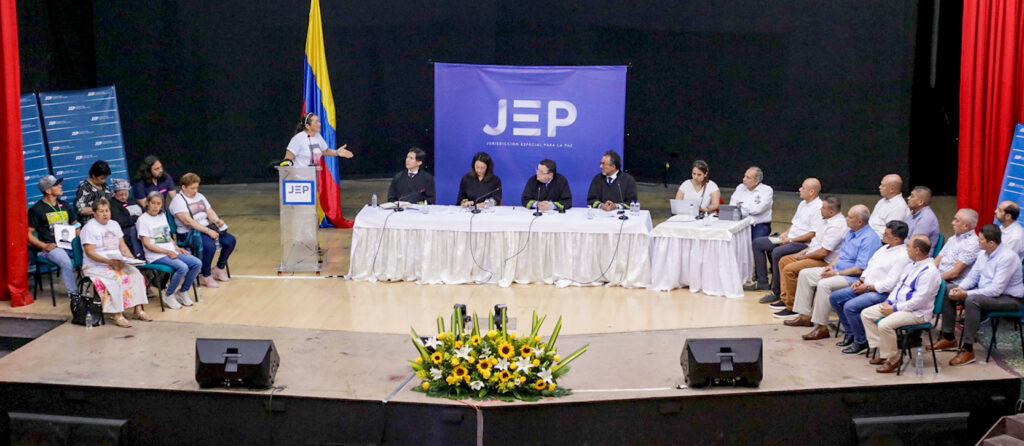Medellín, Colombia – Rodrigo Londoño, previously known by his nom de guerre “Timochenko” while he was chief of the Revolutionary Armed Forces of Colombia (FARC) guerrilla, denounced Colombia’s transitional justice system (JEP) before the international community.
In a statement shared on social media, Londoño alleges that although the implementation of the 2016 Peace Process has been challenging, its successes lie on the will and commitment of ex-FARC combatants, not on the government.
“Since April, the United Nations Security Council and Secretary-General António Guterres have attended to our concerns, alerting the State about the JEP’s delay in issuing rulings and the judicial insecurity that this situation has created for those appearing before it,” he claimed, highlighting the high murder rates of ex-FARC combatants.

Since the Peace Process was signed in 2016, 432 demobilized FARC members have been murdered, as reported by the Peace and Reconciliation Foundation (PARES), an organization seeking to strengthen civil society and democracy in Colombia.
Londoño’s statement came days after magistrate Alejandro Ramelli, the newly-sworn-in president of the JEP, explained in an interview that if cases were not resolved in the specified time period of five years, they would be transferred to the country’s ordinary justice system.
This would rule out the possibility of amnestied sentences that the JEP considers for former guerrilla members, as established in the 2016 Peace Process between the government and the FARC.
“We are doing everything in our power [to issue rulings], but time is limited. Whatever we don’t get to investigate will be returned to the ordinary justice, and here, sentences will be imprisonment,” Ramelli told Colombian radio station Blu Radio on November 30.
In response to Londoño’s allegations, magistrate Ramelli also issued a statement, which he also sent to the UN Security Council and the guarantors of the agreement, clarifying that the JEP’s efficacy depended on FARC members’ truthful contributions to their investigations, and emphasizing the central role that victims play in the processes.

Image Source: JEP via X.
“The signatories of the Peace Agreement, members of the public security forces, and civilians who have complied with their appearances before the JEP will receive tailored sanctions and have their legal situation resolved as long as they publicly acknowledge their responsibility and deliver a detailed and exhaustive truth. It is not enough to assume general responsibility and avoid victims,” the press release read.
Neither the guarantor countries of the 2016 Peace Process – Cuba and Norway – nor the UN have responded to the situation.
Who is Rodrigo Londoño?
Londoño, a native of Colombia’s Quindío coffee-producing department, commanded the FARC guerrilla since 2011, and led the peace talks between the armed group and the government of Juan Manuel Santos from 2012 to 2016, according to InsightCrime, a think tank that investigates organized crime in the Americas.

Image Source: Creative Commons Licenses.
During the talks, Londoño was a staunch proponent of the transformation of the guerrilla into a political party, which he now leads. The COMUNES party was born in 2017 as a clause in the Agreement between the FARC and the Colombian State, and aims to guarantee the political participation of former FARC combatants in the country’s democratic system.
“With the Agreement, we have given a transcendental step towards the quest for a different country. It promotes political participation to build peace, with which we will amplify and deepen democracy,” Londoño stated at the Agreement’s signing ceremony in 2016.
Since then, Londoño has appeared before Colombia’s transitional justice system on several occasions. In 2022, he recognized his culpability in the first macro-case of kidnapping, although he was also charged in November 2024 of recruiting child soldiers in the guerrillla’s decades-long war with the State.
The Special Jurisdiction for Peace (JEP)
The Special Jurisdiction for Peace (JEP) is a component of the Integral System of Truth, Justice, Reparations and Non-Repetition that was created by the 2016 Agreement. Its mandate is to prosecute those who were the most responsible for the crimes committed during Colombia’s armed conflict.
As a transitional justice mechanism, it is tasked with investigating, clarifying, judging and sanctioning “the most serious crimes that occurred in Colombia,” according to its mandate.
It is made up by three chambers: one for the recognition of truth and responsibility, another for amnesties or pardons, and a final one that solves the judicial situations of those who appear before the JEP (known as comparecientes, or appearing parties). In this framework, victims of armed conflict are prioritized and actively participate through every step of the process.

Currently, there are 11,648 alleged perpetrators of crimes that have contributed to the JEP’s proceedings. Depending on their contributions to truth-telling and the recognition of their responsibility, they may be given reduced sentences of up to eight years in non-custodial institutions. However, if the process finds that they have lied or have not recognized their responsibility, their process is handed to ordinary judicial systems, which can sentence to up to 20 years in prison.
The JEP, however, is constricted by a time frame of maximum 20 years, as established by a 2019 Colombian law. Of these, 10 years must be used for investigating alleged crimes, and five must be spent issuing rulings. The remaining five years are an optional extension that the JEP can apply to use, according to magistrate Ramelli.
The JEP has been operating since March 2017, although it has not issued sanctions. It has, however, opened 11 macro-cases for investigation, dealing with different violence patterns experienced by Colombians over 50 years of civil war. These include kidnapping, recruitment of children, crimes against Indigenous peoples, and gender-based violence, among others.
By 2037 the JEP is to investigate, accuse, and issue sanctions for all 11 cases.







